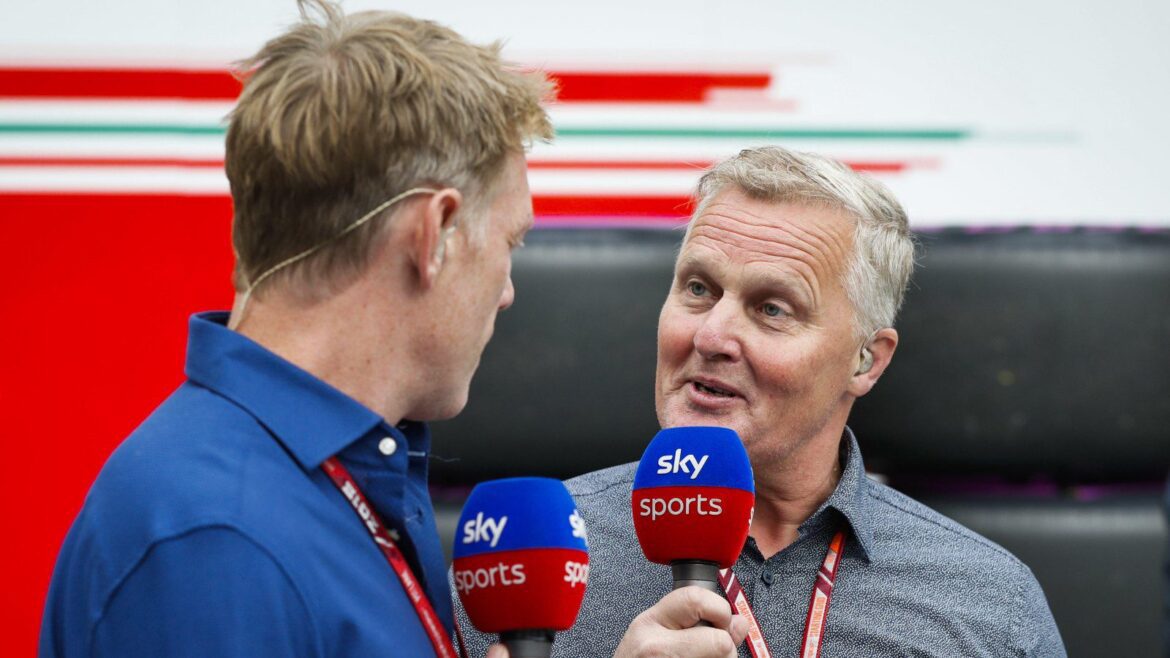Johnny Herbert Critiques Red Bull’s Defense of Verstappen’s Penalty at Saudi Arabian GP
Former Formula 1 driver and commentator Johnny Herbert has expressed strong disapproval of Red Bull Racing’s efforts to challenge the penalty imposed on Max Verstappen during the Saudi Arabian Grand Prix. In a recent interview with ‘Beste Online Casino Nederland’, Herbert dismissed the arguments put forth by Christian Horner, the team principal of Red Bull, as mere "nonsense." The incident occurred during the first lap of the Jeddah race, where Verstappen received a five-second penalty after leaving the track at Turn 1 while attempting to overtake Oscar Piastri.
Horner’s defense relied heavily on a photograph that suggested Verstappen was ahead at the braking point. However, the FIA stewards concluded that Piastri had maintained his lead at the apex of the corner. This crucial point was echoed by Herbert, who was quick to call out what he perceived as an unfair attempt to shift the blame onto the FIA and its officials.
Herbert stated, “Horner brought out a photo to prove who was ahead at Turn 1, but that was complete nonsense. To me, it felt like an attempt to deflect responsibility from the FIA and the stewards. That’s not how it should work.” He highlighted the fact that the decision-making process should be taken seriously and that the integrity of racing regulations must be upheld.
In drawing parallels with a similar incident involving Kimi Antonelli and Charles Leclerc, Herbert noted that Antonelli chose to relinquish his position in the same corner and on the same lap. He suggested that if Verstappen had made a similar choice, he might have secured a victory instead of facing a penalty. “If Verstappen had done the same, perhaps he would have won the race. But they opted to take a risk, trying to offset the penalty by using the open track ahead of him,” he added.
Herbert further criticized the five-second penalty as being lenient. He argued that the rules should be enforced more stringently, especially considering that these are the top drivers in the world, known for their exceptional judgment. “If you leave the track while overtaking at Turn 1, it should warrant a ten-second penalty,” he insisted, emphasizing the need for stricter enforcement of the rules to maintain fairness in the sport.
Another point raised by Herbert was Verstappen’s missed opportunity to give back the position to Piastri. By not doing so, he was able to create enough of a gap to potentially negate the impact of the penalty. Herbert questioned the effectiveness of such a penalty in this context, saying, “If you can compensate for those five seconds and still hold the lead, what’s the point of the penalty?” This observation raises a critical question about the purpose of penalties in Formula 1 racing.
Herbert was adamant that the corner belonged to Piastri during the incident. He explained, “Verstappen was two meters away from the apex. When you’re on the outside and there’s a driver on the inside, your line for the next corner gets compromised. Max eased off the brakes in an attempt to make the pass but ultimately overstepped the mark.” His comments underline the need for drivers to respect each other’s positions on the track, particularly in the critical first laps of a race.
The tension surrounding Herbert’s critique underscores a broader discussion regarding the enforcement of regulations in Formula 1 and the behavior of drivers during the early stages of races. With the stakes so high in Formula 1, the actions of drivers and the decisions made by race officials are often scrutinized, leading to passionate debates among fans and experts alike.
As the racing community continues to analyze the implications of penalties and racing conduct, Herbert’s insights serve as a reminder of the complexities involved in the sport. The delicate balance between aggressive racing and fair play is a topic that resonates with both fans and participants in the sport.
In conclusion, the ongoing conversation about the actions taken by Red Bull Racing and Verstappen during the Saudi Arabian Grand Prix reflects a significant aspect of Formula 1: the interpretation and application of racing rules. As teams and drivers navigate these challenges, the outcomes will undoubtedly influence future races and the discourse surrounding racing ethics and responsibilities.
With the excitement of Formula 1 unfolding, fans are eager to see how these discussions will shape the future of racing and how teams will adapt to the ever-evolving landscape of the sport. As the season progresses, all eyes will be on the drivers, teams, and officials to maintain the integrity and thrill that Formula 1 has to offer.
